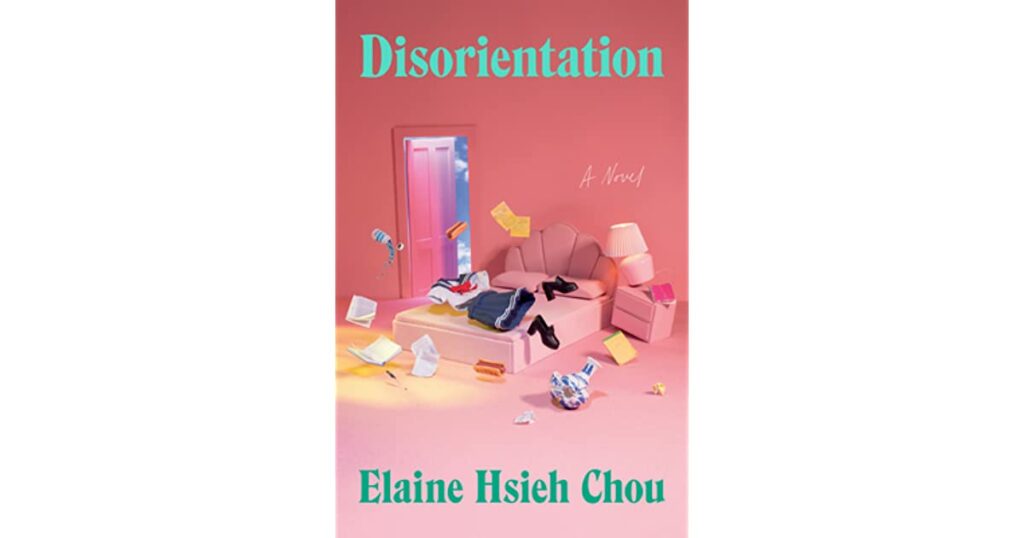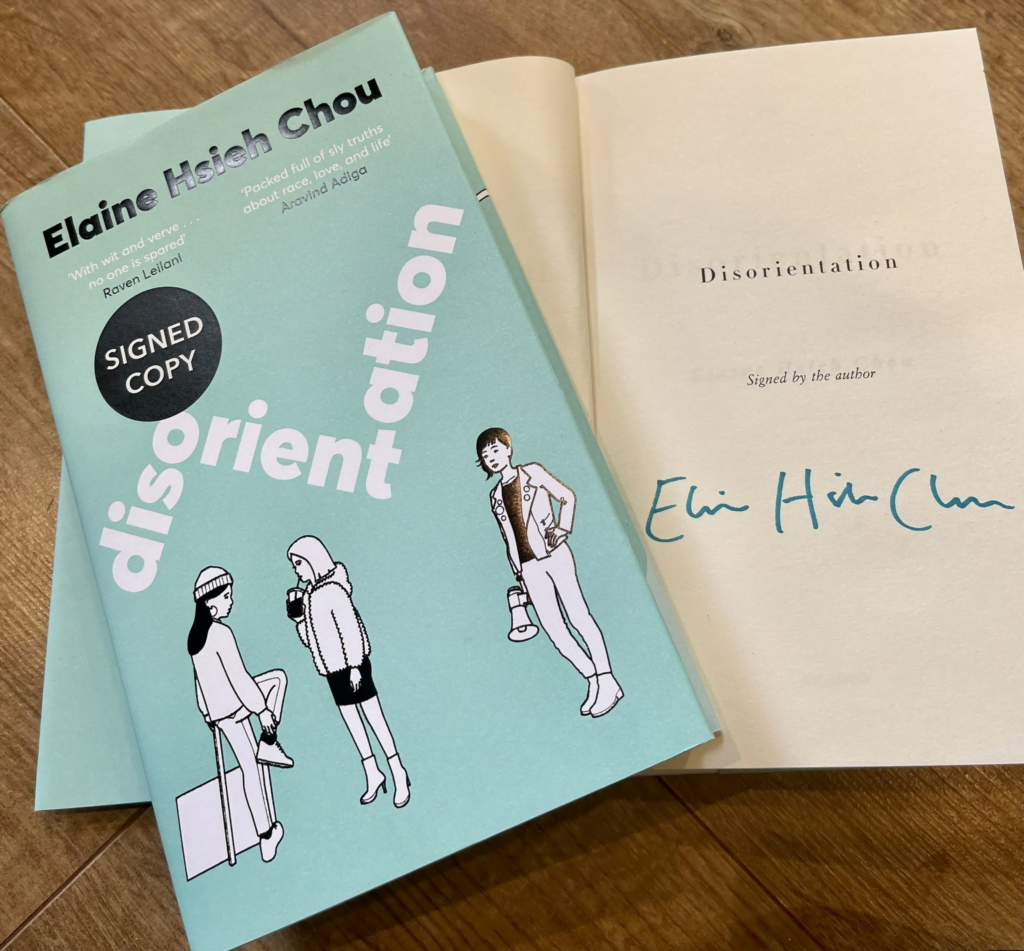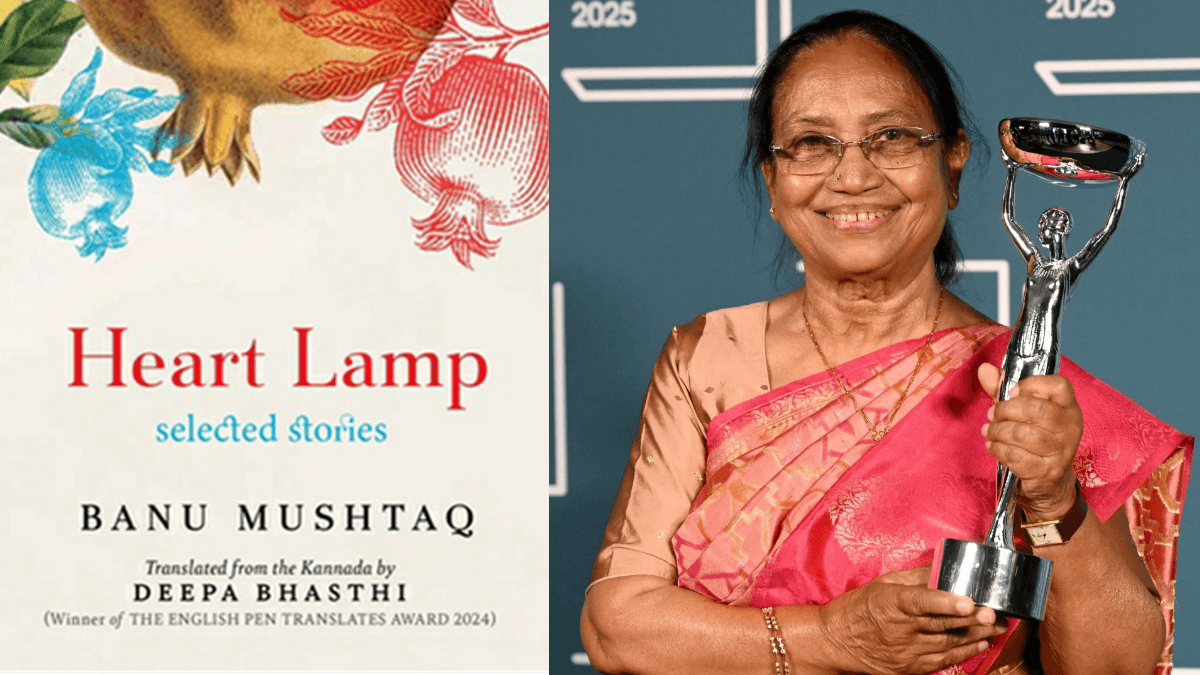Elaine Hsieh Chou’s debut book ‘Disorientation‘ follows a twenty-nine-year-old Taiwanese-American protagonist Ingrid Yang in her eighth year of Ph.D., desperate to finish her dissertation on the late Chinese-American poet Xiao-Wen Chou on an American campus.
With constantly procrastinating her work and ignoring meetings with her thesis advisor, one day while researching in the archives, Ingrid uncovers a curious note that turns the whole university department upside down.
The book is written in lightly readable yet brilliant and funny prose style, filled with many dialogues, e-mails and texts. Structurally, the story is divided into four parts or quarters per the academic calendar, i.e. fall, winter, spring, and summer.

The strength of the book lies in the messiness of the narrative. Ingrid, along with her friend Eunice, goes on a discovery about the poet Xiao-Wan Chou, that is full of risks and hilarious adventures. The truth will eventually divide the department’s people, and the most important question will arise whether the knowledge of an artist’s race is essential for the world.
Uneasiness felt by Ingrid during her school life when her classmates told her how flat her face was, made kung fu noises when she played at the playground or slapped a ‘MADE IN TAIWAN’ sticker on her arm shaped her inner world as a child till her adulthood, where this racist behaviour is not direct but is present.
Chou satirises the academic or campus life in all its working. We all know or are aware of the internal politics or almost incestuous kind of life in the university where many inside and internal dealings matters without any care for the outside real world beyond the gate.
The book is filled with monstrous professors or academic peers, especially the villainous character of Michael Bartholomew. Michael, Ingrid’s academic advisor, deliberately forces her to write a thesis on the poet Xian-Wen Chou (which she’s not interested in) and becomes the story’s central villain as his true intentions become more apparent as the story unfolds.
This book is a brilliantly clever commentary on Asian identity or the misuse of cultural identities that specific individuals (in this case, white men) do to be great and make their work look more authentic.

The ever-present question of identity or predominantly racial identity seems to run like blood in the novel. Ingrid, from very early on in her childhood, had been embarrassed by her Chinese parents and their language. This shame regarding her ethnicity grows more profound as she grows and enters high school, where she gets troubled by the expectations of her white peers.
The whole narrative is so great because of the protagonist Ingrid, who is so messy yet believable (not in any way a clichéd representation). Her nature of constantly being ashamed of her Asian identity, her confusion and dilemma in her mind about her relationship and career, her jealousies, and her desires and her loves makes her such a fascinating and realistic character to follow in campus.
With its witty and playful tone, the serious questions regarding racism are tackled brilliantly here. Uneasiness felt by Ingrid during her school life when her classmates told her how flat her face was, made kung fu noises when she played at the playground or slapped a ‘MADE IN TAIWAN’ sticker on her arm shaped her inner world as a child till her adulthood, where this racist behaviour is not direct but is present.
Sometimes some words, thoughts and actions affect her, but she doesn’t seem to react to them now, but these actions imbibe in the person’s mind.
Also Read: A Critique Of The Queer Young Adult Genre
By the time she entered high school, she was fully immersed in all its petty dramas and daily betrayals—scenes that composed her ‘real life.’ Her ‘home life’ was the backstage area where she ate, showered and slept; her parents, extras who occasionally wandered through a scene.
The whole narrative is great because of the protagonist Ingrid, who is so messy yet believable (not in any way a clichéd representation) in a campus environment. Her nature of constantly being ashamed of her Asian identity, her confusion and dilemma in her mind about her relationship and career, her jealousies, and her desires and her loves makes her such a fascinating and realistic character to follow.
The novel has some wonderfully created characters, but the most memorable is Eunice Kim. After reading the novel, you cannot escape the image of Eunice with boba tea in her hands. Eunice, Ingrid’s best friend, is the opposite of Ingrid. She believes in herself and makes Ingrid think. She is what a best friend should be.
Elaine Hsieh Chou has written a witty and poignantly funny novel that is highly readable, full of twists and turns and a protagonist that is unlike anyone else.




